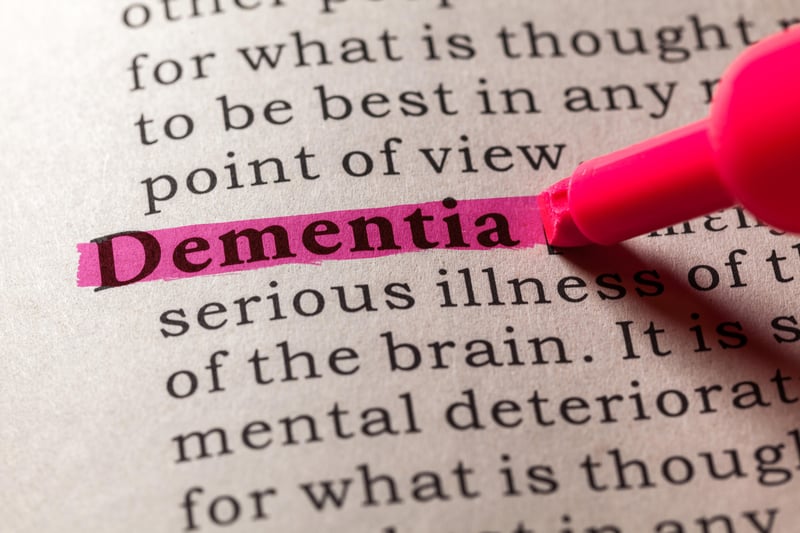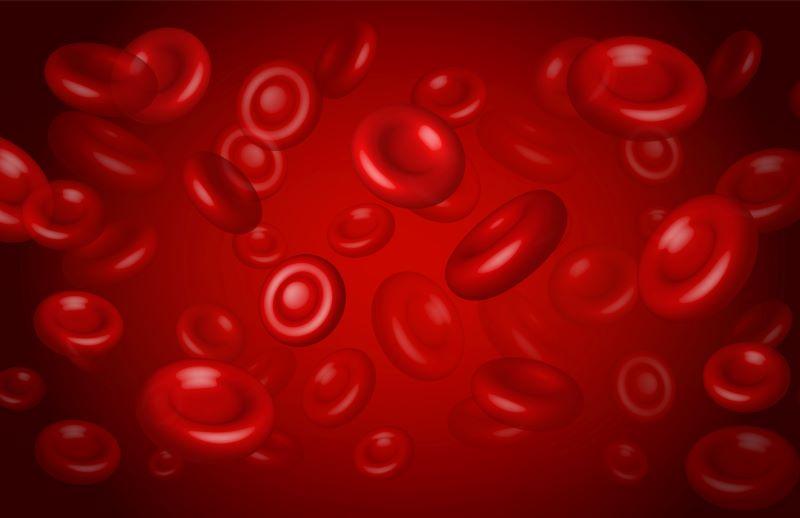Get Healthy!
199 Results for search "Heart / Stroke-Related: Coronary-Artery Disease".
Health News Results - 199
Preliminary mortality data for 2022 finds America making its way back from the devastation of the pandemic, with a significant 5.3% decline in deaths compared to 2021.
And although COVID-19 remained the fourth leading cause of death in the United States last year, the number of fatalities linked to the disease fell by almost half -- from 462,193 deaths in 2021 to 244,986 deaths in 2022. <...
- Ernie Mundell HealthDay Reporter
- |
- May 4, 2023
- |
- Full Page
It's standard for heart attack survivors to take beta blocker medications for years afterward, but a new study suggests that may be unnecessary for people who've had a milder heart attack.
Researchers found that among heart attack survivors whose hearts still had normal pumping ability, there was no added benefit from using beta blockers for more than one year. They were no less lik...
- Amy Norton HealthDay Reporter
- |
- May 4, 2023
- |
- Full Page
Could an electronic chest "tattoo"-- wireless, lightweight and razor-thin -- upend heart monitoring and lower the odds of heart disease for folks who are at high-risk?
Just possibly.
The clear patch in question is not quite 4 by 5 inches in size, weighs less than an ounce, and is powered by a battery no bigger than a penny and just like a temporary tattoo sticker, it's designed to ...
- Alan Mozes HealthDay Reporter
- |
- May 2, 2023
- |
- Full Page
If you're longing for a nap, try to keep it short.
Researchers found that siestas of 30 minutes or more in Murcia, a region of Spain, where it's common to nap, were linked to a higher risk of obesity, a group of conditions called metabolic syndrome and high blood pressure.
"Not all siestas are the same. The length of time, position of sleep and other specific factors can affect t...
- Cara Murez HealthDay Reporter
- |
- April 27, 2023
- |
- Full Page
Patients with a common vascular disease that causes blockages in their leg vessels had both worse symptoms and outcomes if they were Black or poor, new research finds.
The study from Michigan Medicine looked at more than 7,000 patients with peripheral arterial disease (PAD) who had a lower extremity bypass operation to improve circulation. PAD involves plaque blocking the vessels that ca...
- Cara Murez HealthDay Reporter
- |
- April 20, 2023
- |
- Full Page
Depression during pregnancy may be linked to heart disease as soon as two years later, new research suggests.
This is true even when patients don't have high blood pressure during pregnancy, the research team reports April 19 in the Journal of the American Heart Association.
"We need to use pregnancy as a window to future health,"said lead study author
U.S. prison inmates may be severely undertreated for common chronic health conditions, such as asthma, type 2 diabetes, HIV and mental illness, new research suggests.
While researchers lacked complete inmate data, they reached this conclusion through a variety of sources, including national health survey data from 2018 to 2020 and a commercial prescription database.
They found that ...
- Cara Murez HealthDay Reporter
- |
- April 14, 2023
- |
- Full Page
Sometimes cancer, and the treatments meant to eradicate it, can damage the heart and blood vessels. Now, a new analysis finds that damage may be much more likely if the patient is Black.
Black patients had 71% higher odds of developing what is known as cardiotoxicity following chemotherapy when compared to white patients. They also had increased odds of being diagnosed with congest...
- Cara Murez HealthDay Reporter
- |
- April 14, 2023
- |
- Full Page
As people with HIV live longer they're at risk of premature heart disease. But a new study finds statin drugs can cut the risk of serious heart problems by more than one-third.
The U.S. National Institutes of Health trial found the cholesterol-lowering drugs so effective, in fact, that the study was stopped early.
Taking the daily statin pitavastatin calcium lowered the risk of majo...
- Cara Murez HealthDay Reporter
- |
- April 13, 2023
- |
- Full Page
Be forewarned: High blood pressure in your 30s may lead to poorer brain health in your 70s.
A new study suggests that treating the condition in young and middle-aged adults may help prevent dementia and Alzheimer's disease later on, especially in men.
For the study, researchers examine...
- Cara Murez HealthDay Reporter
- |
- April 12, 2023
- |
- Full Page
It's well known that being overweight or obese can increase health risks.
But a new study finds that the reasons why a person is obese may have some impact on heart disease risk.
Specifically, being obese because of lifestyle carried higher risks than it did if the extra weight was due to genetic predisposition, researchers found.
"The link between obesity and card...
- Cara Murez HealthDay Reporter
- |
- April 6, 2023
- |
- Full Page
It's machine: 1, man: 0 in the latest battle between artificial intelligence (AI) technology and human health care pros.
This time researchers set out to see if cardiologists could tell the difference between AI and a sonographer's assessments of a key measure of heart health on ultrasound images.
Spoiler alert: They couldn't.
"This is a machine beats man situation,"said stud...
- Denise Mann HealthDay Reporter
- |
- April 5, 2023
- |
- Full Page
People at risk of heart disease could extend their lives by going Mediterranean or low-fat, according to a new analysis of popular diets.
In the world of nutrition and disease, dietary fat is an often confusing subject. And in general, experts say, recent years have seen a move away from prescribing a strict amount of dietary fat, and more focus on the source of that fat: Is it from heal...
- Amy Norton HealthDay Reporter
- |
- April 3, 2023
- |
- Full Page
Assessing heart roundness may be a new way to diagnose cardiovascular conditions, new research suggests.
While doctors now use measures like heart chamber size and systolic function to diagnose and monitor cardiomyopathy and other related heart issues, cardiac sphericity (how round the heart is) may be another good tool.
"Roundness of the heart isn't necessarily the problem per se -...
- Cara Murez HealthDay Reporter
- |
- March 30, 2023
- |
- Full Page
For those who want to get active but feel that joining a gym or exercising on a daily basis is a bridge too far, new research may have found the sweet spot: walking.
After stacking the walking habits of 3,100 adults up against a decade's worth of health outcomes, investigators concluded that those who logged roughly 8,000 steps in a single day -- even if only just one day a week -- r...
- Alan Mozes HealthDay Reporter
- |
- March 29, 2023
- |
- Full Page
It can be downright discouraging to work hard to lose 10 pounds, only to regain a few later.
But don't be downhearted -- a new evidence review says the important heart health benefits of weight loss are sustained even if some of the weight comes back.
People who drop some pounds still have lower blood pressure and better cholesterol and blood sugar numbers even if they regain a litt...
- Dennis Thompson HealthDay Reporter
- |
- March 28, 2023
- |
- Full Page
Millions of middle-aged folks may be walking around with no symptoms of heart disease, and yet they still face a higher risk for a heart attack, new research shows.
What gives? Subclinical or silent heart disease may be responsible. This is the early thickening or hardening of the heart arteries that can worsen over time and cause crushing chest pain, known as angina, or even a heart...
- Denise Mann HealthDay Reporter
- |
- March 28, 2023
- |
- Full Page
Multiple sclerosis (MS) and atherosclerosis both involve an abnormal hardening of body tissue, and recent research suggests they may be linked.
MS is a neurodegenerative disease that attacks the brain and spinal cord. Atherosclerosis is hardening of the arteries.
Studies show connections between the two, according to Ochsner Health System in New Orleans. In 2018, a team of Romanian ...
- Cara Murez HealthDay Reporter
- |
- March 22, 2023
- |
- Full Page
One way to reduce the risk of heart disease: Eat more nuts and seeds, according to a new review of 60 studies.
Scandinavian researchers found that eating nuts could reduce the risk of a heart attack.
"If you eat a handful of nuts every day, that is around 30 grams, you will have a 20% to 25% lower risk of suffering from cardiovascular disease. In comparison, adults in the Nordic cou...
- Cara Murez HealthDay Reporter
- |
- March 21, 2023
- |
- Full Page
Steering clear of red meat, dairy and processed foods in favor of vegetables, fruits, nuts, extra virgin olive oil and whole grains will do a woman's heart good, a new review shows.
How much good? Australian investigators concluded that women who most closely followed the Mediterranean diet -- which also features legumes, fish and shellfish, and moderate amounts of wine -- appeared to low...
- Alan Mozes HealthDay Reporter
- |
- March 15, 2023
- |
- Full Page
Ordering special heart scans before a major surgery to gauge risks may be unnecessary, a new study suggests.
Researchers found that surgeons can instead estimate patients' risk of heart attack or death by reviewing existing images of the chest captured months earlier during screening for lung issues, such as pneumonia or cancer.
This could avoid surgery delays and increased costs, w...
- Cara Murez HealthDay Reporter
- |
- March 13, 2023
- |
- Full Page
Young adults in the United States carry an increasing burden of heart health risk factors, making it more likely they'll suffer a heart attack and stroke as they age, a new study warns.
More adults ages 20 to 44 are obese and diabetic than a decade ago, and they are more likely to have poorly controlled blood pressure, according to the study published March 5 in the
Not everyone can tolerate statins to reduce their high cholesterol, but now a new study finds the medication bempedoic acid (Nexletol) reduced the combined rate of bad cardiovascular events by 13%.
"We're very pleased with the results,"said study chair Dr. Steven Nissen, chief academic officer of the H...
- Cara Murez HealthDay Reporter
- |
- March 6, 2023
- |
- Full Page
While the idea of getting 10,000 steps a day is bandied about as a good walking goal, that can be intimidating to some people, depending on how fit they are.
Now, new research in adults between the ages of 70 and 90 finds that a much smaller number of steps can make a difference in heart health.
It's possible, according to researchers, that just 3,000 steps a day has benefit...
- Cara Murez HealthDay Reporter
- |
- March 2, 2023
- |
- Full Page
Twenty percent of folks who are at high risk for heart disease refuse statins that could help prevent it, researchers report.
They found that women were about 20% more likely than men to decline statin drugs when they were first recommended and about 50% more likely to never accept a statin recommendation.
The research began when
If it's good for your heart, it's good for your brain, too.
This is the main message from a new study showing that seven heart-healthy habits can lower your chances of developing dementia down the road. This list includes being active, eating better, maintaining a healthy weight, not smoking, having healthy blood pressure, controlling cholesterol, and keeping blood sugar (or "glucose") le...
- Denise Mann HealthDay Reporter
- |
- February 28, 2023
- |
- Full Page
An artificial sweetener commonly used in processed foods could be increasing people's risk of heart attack and stroke, a new study argues.
Erythritol is a natural sugar alcohol found in many vegetables and fruit. Even the human body produces small amounts of erythritol.
But higher levels of the sweetener added to processed foods might increase people's risk of blood clots, researche...
- Dennis Thompson HealthDay Reporter
- |
- February 27, 2023
- |
- Full Page
New research suggests that smoking weed is far from benign: Toking every day might raise your odds of heart disease.
The increased risk is not insignificant. Daily marijuana users are about one-third more likely to develop coronary artery disease, compared with people who have never used the drug, researchers say.
Marijuana is becoming more widely available and its link with heart ...
- Steven Reinberg HealthDay Reporter
- |
- February 27, 2023
- |
- Full Page
Getting good sleep may have long-term benefits -- even extending your life span, a new study suggests.
Researchers found that young people with better sleep habits were incrementally less likely to die early. About 8% of deaths from any cause could be attributed to poor sleep patterns.
- Cara Murez HealthDay Reporter
- |
- February 23, 2023
- |
- Full Page
Having the lingering symptoms known as long COVID after a COVID-19 infection more than doubles the risk of developing new heart symptoms, according to new research.
"COVID-19 is more than a simple respiratory disease -- it is a syndrome that can affect the heart,"said lead study author Joanna Lee, a medical student at David Tv...
- Cara Murez HealthDay Reporter
- |
- February 23, 2023
- |
- Full Page
Sticking to a consistent sleeping routine may help keep your arteries clear as you age, new research suggests.
Conversely, older adults who slept for a varying number of hours each night and tended to fall asleep at different times were more likely to develop hardening of the arteries, which can lead to heart attack or stroke, the researchers reported.
"Sleep is super important to o...
- Denise Mann HealthDay Reporter
- |
- February 20, 2023
- |
- Full Page
Keeping your heart healthy has numerous benefits, including a reduced risk for coronary heart disease, stroke, heart attack and even
You might think about cholesterol when you consider your cardiovascular health.
It's also important to consider your A1C levels.
Sugar is just as bad for your heart as cholesterol -- if not worse, said Dr. Daniel Lodge, a thoracic surgeon at Penn State Health Specialty S...
- Cara Murez HealthDay Reporter
- |
- February 12, 2023
- |
- Full Page
FRIDAY, Feb. 10, 2023 (HealtDay News) -- Sen. John Fetterman, who suffered a stroke last May while campaigning for his Senate seat, remains hospitalized after being admitted on Wednesday for lightheadedness, but doctors have ruled out a second stroke.
"Towards the end of the Senate Democratic retreat today, Senator John Fette...
- Robin Foster HealthDay Reporter
- |
- February 10, 2023
- |
- Full Page
In the United States alone, more than 800,000 heart attacks occur each year.
That number will likely continue to rise: The American College of Cardiology predicts significant increases in heart disease and cardiovascular...
- Melanie Colvin HealthDay Reporter
- |
- February 9, 2023
- |
- Full Page
The U.S. flu season is expected to extend into spring, and experts say it's not too late to get a flu shot.
Last year's flu season was mild, but this season has already seen triple the number of flu-related deaths in the United States.
"Even a minor respiratory virus can be hard on someone with lung disease, and the flu is especially challenging,"said
That seemingly sudden heart attack? It may have been triggered by underlying coronary heart disease.
Heart attack is a big event, but for some it might be the first sign of a problem that has been building for quite some time.
Coronary heart disease -- also known as coronary artery disease -- is the most common type of heart disease in the United States, according to the U.S. Cente...
- Cara Murez HealthDay Reporter
- |
- February 6, 2023
- |
- Full Page
Americans who live near a "food swamp" may have a higher risk of suffering a stroke, a preliminary study finds.
A number of studies have looked at the health consequences of living in a so-called food desert -- areas with few grocery stores or other options for buying fresh food.
Food swamps are different: The term was coined to describe communities where fast food restaurants, conv...
- Amy Norton HealthDay Reporter
- |
- February 2, 2023
- |
- Full Page
Taking good care of your teeth -- brushing, flossing, regular dental checkups -- is, of course, important for good health. Now researchers say it's also vital for brain health.
While it was already clear that poor dental health could increase stroke and heart disease risk, a new study funds that adults who are genetically prone to have cavities, dentures and missing teeth are also more li...
- Cara Murez HealthDay Reporter
- |
- February 2, 2023
- |
- Full Page
People with celiac disease may be more likely to develop heart disease despite having fewer traditional heart risks than other folks.
Celiac disease is an immune reaction that occurs when some people eat gluten, a protein found in wheat, barley and rye. The only treatment is following a strict gluten-free diet.
People with celiac disease may be 27% more likely to develop heart disea...
- Denise Mann HealthDay Reporter
- |
- January 31, 2023
- |
- Full Page
People who suffer a heart attack or stroke in middle age may develop memory and thinking problems earlier in life, too, a new study finds.
The study, published online Jan. 25 in the journal Neurology, focused on people who had developed premature cardiovascular disease. That refers...
- Amy Norton HealthDay Reporter
- |
- January 26, 2023
- |
- Full Page
It's well known that obesity fuels an increase in a person's risk for other chronic health conditions.
Now, a new study shows that weight-loss surgery could set that person's health, and longevity, on a different path.
Utah researchers who followed patients for up to 40 years after they had one of four types of weight-loss (bariatric) surgery found they had significant reduc...
- Cara Murez HealthDay Reporter
- |
- January 25, 2023
- |
- Full Page
It's never too late for an expectant mom to adopt healthy habits for her baby and herself.
The American Heart Association (AHA) offers some heart-healthy tips.
"Pregnancy is often a pivotal time in a woman's life from both short- and long-term perspectives," said Dr. Michelle Albert...
- Cara Murez HealthDay Reporter
- |
- January 16, 2023
- |
- Full Page
Giving up cigarettes can be excruciating, with cravings and withdrawal symptoms lingering for weeks, especially if you aren't strongly motivated.
Yet, just minutes after that first smoke-free breath, your body starts to change for the better. And with all the health...
- Cara Murez HealthDay Reporter
- |
- January 3, 2023
- |
- Full Page
Could hydration hold the key to longevity?
Maybe, suggests new research that discovered older adults who are properly hydrated may be healthier and live longer than those who aren't, having less incidence of conditions like heart and lung disease.
"Staying well-hydrated may slow down aging, prevent or delay development of chronic diseases, and therefore prolong disease-free life," s...
- Steven Reinberg HealthDay Reporter
- |
- January 3, 2023
- |
- Full Page
It's that time of year again, when people gather up their best intentions for living a healthier life and make New Year's resolutions.
Luckily, the American Medical Association (AMA) has some suggestions on which pledges pack the most punch.
Start by being more physically active. Adults should do at least 150 minutes a week of moderate-intensity activity or 75 minutes a week of vigo...
- Cara Murez HealthDay Reporter
- |
- December 30, 2022
- |
- Full Page
Insured Black patients are less likely to undergo minimally invasive heart valve replacement or repairs -- relatively safe procedures -- than their white counterparts, new research shows.
Black patients who need a mitral valve replacement are more likely to have operations that involve opening the chest and cutting through the breastbone to reveal the heart, a
For people with heart disease, new research suggests loneliness, social isolation and living alone can shave years off your life.
This trio puts people with established cardiovascular disease at greater risk of premature death, according to the international study. Cardiovascular disease refers to heart disease and stroke.
"Social health factors such as loneliness and social isolat...
- Cara Murez HealthDay Reporter
- |
- December 28, 2022
- |
- Full Page
Patients who undergo angioplasty and stenting to open clogged arteries in and around the heart should also be screened for depression, according to a new study.
Researchers found that depressed patients were less likely than their mentally healthy peers to take their prescribed medications, including beta-blockers, antiplatelets and statins.
These medications reduce the likelihood...
- Cara Murez HealthDay Reporter
- |
- December 13, 2022
- |
- Full Page




















































